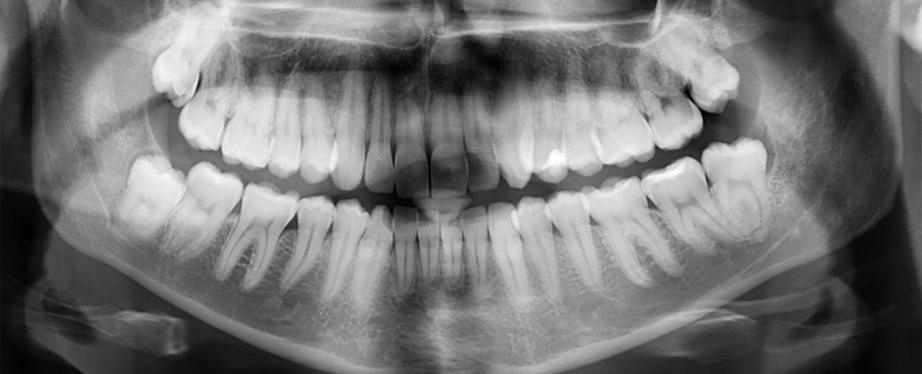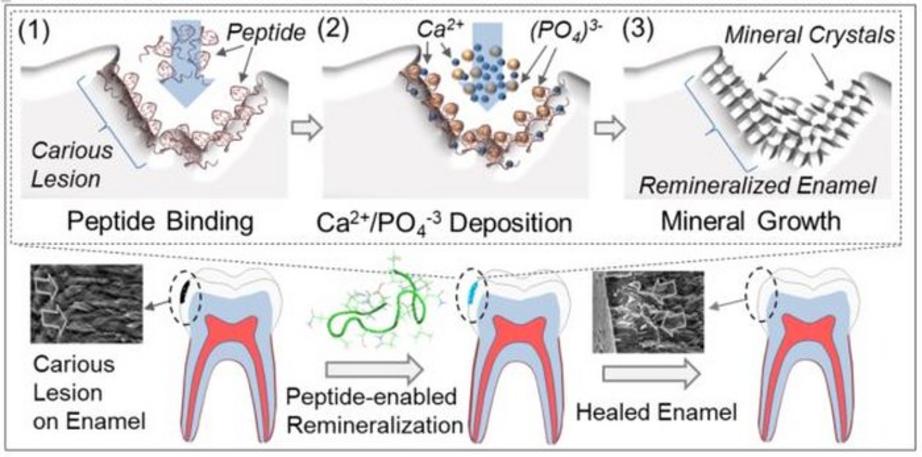This new treatment could heal tooth cavities without any fillings
It regrows the enamel itself.
Scientists have invented a new product that can encourage tooth enamel to grow back, which means we could finally have a game-changing way to treat dental cavities.
Researchers at the University of Washington have developed a treatment based on peptides - short chains of amino acids, linked by peptide bonds, that aren't long enough to be considered full proteins.
When applied to artificially created dental lesions in a laboratory setting, the product remineralised tooth enamel, effectively "healing" the lesion.

"Remineralisation guided by peptides is a healthy alternative to current dental health care," said materials scientist Mehmet Sarikaya.
Tooth enamel is produced by a type of cell called an ameloblast. These secrete the proteins that form enamel while the tooth is still in the gum.
Unfortunately, once the process of forming tooth enamel is complete and the tooth has emerged, our ameloblasts die off. But we continue to lose enamel throughout our lifetime.
"Bacteria metabolise sugar and other fermentable carbohydrates in oral environments and acid, as a by-product, will demineralise the dental enamel," said dentistry researcher Sami Dogan.
To a small extent, our teeth can be remineralised with the help of saliva, fluoride toothpaste and drinking water additives.
But once there's a visible cavity on the tooth, it needs to be treated by a dentist - which usually means drilling, and packing the hole with a dental filling.
To develop their new treatment, the team turned to one of the proteins produced by ameloblasts. Called amelogenins, these proteins play a key role in regulating the formation of tooth enamel.
The team designed peptides based on this protein and created a treatment with the peptide as an active ingredient.
They applied it to dental lesions in a laboratory setting and found that it helped form a new mineralised layer to the demineralised areas, integrating it with the enamel underneath.

They also treated similar lesions with fluoride, but only the peptide treatment resulted in the remineralisation of a relatively thick layer - resembling the structure of healthy enamel.
Tests still need to be undertaken to see of the peptide solution works as well as it does in a living mouth as it did in the laboratory.
And for deep cavities that reach the dentine layer underneath the enamel, a filling would still likely be required.
But the researchers believe their product could be sold as part of a preventative everyday tooth care routine, in the form of a toothpaste or gel, to help minimise expensive trips to the dentist for shallower cavities.
"Peptide-enabled formulations will be simple and would be implemented in over-the-counter or clinical products," Sarikaya said.
The team has published their research in the journal ACS Biomaterials Science & Engineering.

